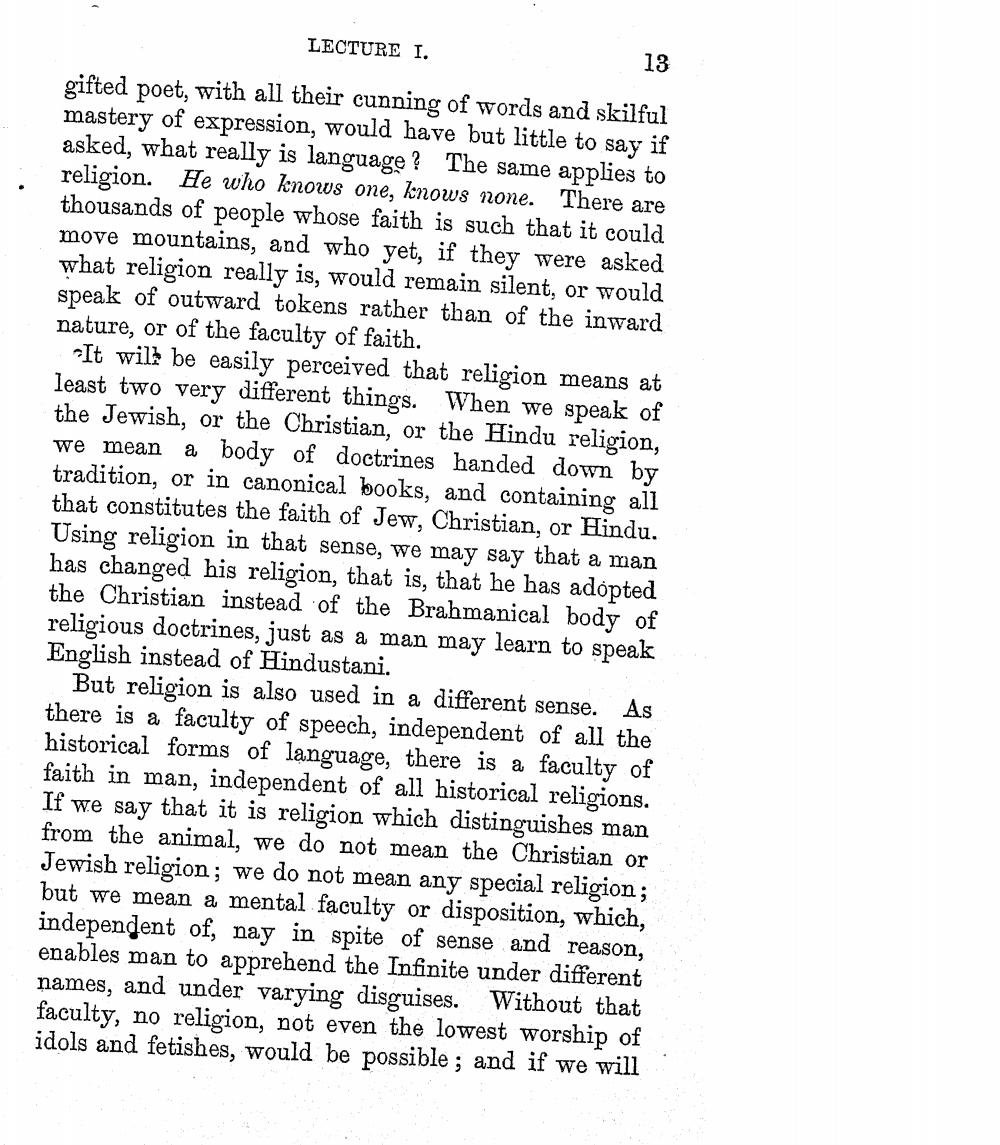________________
LECTURE I.
gifted poet, with all their cunning of words and skilful mastery of expression, would have but little to say if asked, what really is language? The same applies to religion. He who knows one, knows none. There are thousands of people whose faith is such that it could move mountains, and who yet, if they were asked what religion really is, would remain silent, or would speak of outward tokens rather than of the inward nature, or of the faculty of faith.
It will be easily perceived that religion means at least two very different things. When we speak of the Jewish, or the Christian, or the Hindu religion, we mean a body of doctrines handed down by tradition, or in canonical books, and containing all that constitutes the faith of Jew, Christian, or Hindu. Using religion in that sense, we may say that a man has changed his religion, that is, that he has adopted the Christian instead of the Brahmanical body of religious doctrines, just as a man may learn to speak English instead of Hindustani.
But religion is also used in a different sense. As there is a faculty of speech, independent of all the historical forms of language, there is a faculty of faith in man, independent of all historical religions. If we say that it is religion which distinguishes man from the animal, we do not mean the Christian or Jewish religion; we do not mean any special religion; but we mean a mental faculty or disposition, which, independent of, nay in spite of sense and reason, enables man to apprehend the Infinite under different names, and under varying disguises. Without that faculty, no religion, not even the lowest worship of idols and fetishes, would be possible; and if we will




